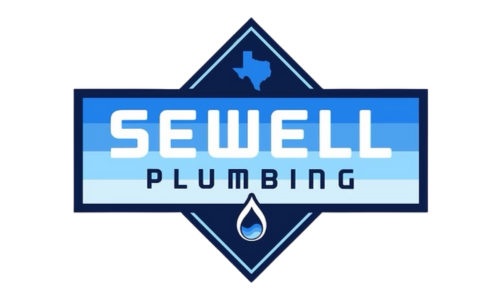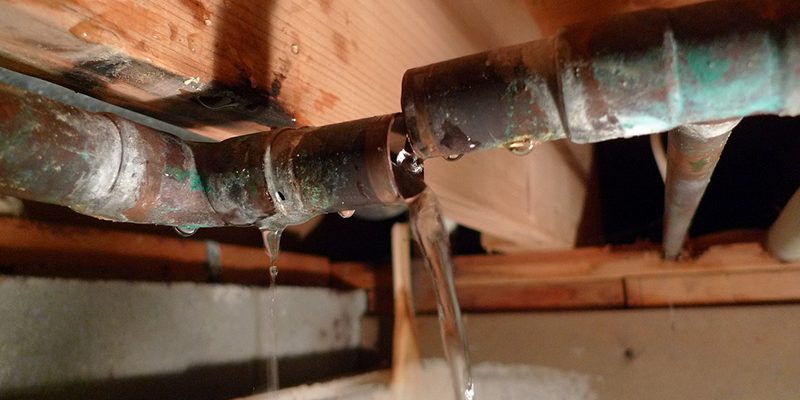Emergency water leak repair is a critical task that every homeowner should be prepared for. Water leaks can cause significant damage to your property if not addressed immediately. This comprehensive guide will provide you with the necessary steps, tips, and solutions to handle emergency water leaks effectively, ensuring the safety and integrity of your home.
Understanding Emergency Water Leaks
What Constitutes an Emergency Water Leak?
An emergency water leak is any water leak that poses an immediate threat to your property or safety. Examples include burst pipes, severe leaks from appliances, or water seeping through the foundation. Unlike minor leaks, these emergencies require immediate attention to prevent extensive damage and costly repairs.
Common Causes of Water Leaks
Water leaks can occur for various reasons. Pipe corrosion is a common cause, where old or poorly maintained pipes develop rust and eventually leak. Bursts often result from freezing temperatures causing pipes to expand and crack. Additionally, appliance malfunctions, such as broken hoses or valves in washing machines and dishwashers, can lead to sudden leaks.
Potential Damage from Water Leaks
Water leaks can cause extensive damage to your home. Structural damage is a significant concern, as water can weaken foundations, walls, and floors. Moisture from leaks can also lead to mold and mildew growth, posing health risks and further damaging your property. Addressing leaks promptly is crucial to avoid these issues.
Immediate Steps to Take When You Discover a Leak
Turning Off the Water Supply
When you discover a water leak, the first step is to turn off the water supply. Locate the main shut-off valve, usually found in the basement, crawl space, or near the water meter. Turn the valve clockwise to stop the water flow. This action can prevent further damage and give you time to address the leak.
Minimizing Water Damage
After shutting off the water supply, focus on minimizing water damage. Use towels, buckets, and mops to soak up excess water. Move valuables, furniture, and electronics to a safe area to prevent them from getting damaged. Quick action can significantly reduce the impact of the leak on your property.
Documenting the Damage
Documenting the damage is essential for insurance claims. Take photos and detailed notes of the affected areas, including any visible damage to walls, floors, and personal belongings. This documentation will be valuable when filing a claim and negotiating with your insurance company.
DIY Emergency Water Leak Repair
Temporary Fixes for Small Leaks
For small leaks, temporary fixes can buy you time until professional help arrives. Plumber’s tape or epoxy putty can seal minor cracks or holes in pipes. Rubber patches or hose clamps can also provide temporary relief. However, these solutions are not permanent and should be followed by professional repair.
Tools and Materials You Need
Having the right tools and materials on hand can make emergency water leak repair more manageable. Basic plumbing tools such as wrenches, pliers, and pipe cutters are essential. Additionally, emergency repair kits containing sealants, patches, and tape can be valuable in a crisis.
Safety Precautions
Safety is paramount when dealing with emergency water leaks. Avoid electrical hazards by turning off power to affected areas. Wear protective gear, such as gloves and goggles, to prevent injuries. If the leak involves contaminated water, such as sewage, take additional precautions to avoid health risks.
When to Call a Professional
Assessing the Severity of the Leak
Knowing when to call a professional is crucial. If the leak is severe, affects multiple areas, or involves sewage, professional intervention is necessary. Delaying can lead to extensive damage and higher repair costs. A professional can assess the situation accurately and provide effective solutions.
Finding a Reliable Plumber
Choosing the right plumber for emergency water leak repair is essential. Look for professionals with the necessary credentials, experience, and positive reviews. Ask for recommendations from friends and family, and check online reviews to ensure you hire a reliable and trustworthy plumber.
What to Expect from a Professional Repair
Professional repairs typically involve a thorough assessment of the leak, followed by the necessary repairs. The process may include replacing damaged pipes, repairing appliances, or addressing structural issues. A professional will provide an estimated time and cost for the repair, ensuring transparency and quality work.
Preventing Future Water Leaks
Regular Plumbing Inspections
Regular plumbing inspections can help prevent future water leaks. Schedule annual checks with a professional plumber to identify potential issues early. Inspections can catch minor problems before they escalate, saving you from emergency repairs and costly damage.
Upgrading Old Plumbing Systems
Upgrading old plumbing systems is an effective way to prevent leaks. Modern materials, such as PEX or copper pipes, are more durable and less prone to corrosion. If your home has outdated plumbing, consider upgrading to ensure long-term reliability and reduce the risk of leaks.
Proper Appliance Maintenance
Maintaining your appliances can also prevent leaks. Regularly check hoses and connections on washing machines, dishwashers, and refrigerators. Replace worn-out hoses and ensure connections are secure. Additionally, perform routine maintenance on water heaters to prevent leaks and extend their lifespan.
Dealing with Water Damage
Drying Out Your Home
After addressing the leak, drying out your home is crucial to prevent mold growth and further damage. Use fans and dehumidifiers to remove moisture from the affected areas. Remove wet materials, such as carpets and furniture, to allow the area to dry thoroughly.
Preventing Mold Growth
Mold can start growing within 24-48 hours after a leak, making it essential to act quickly. Identify early signs of mold, such as musty odors or discoloration on walls and ceilings. Clean and disinfect affected areas using mold-killing products to prevent health risks and structural damage.
Repairing Structural Damage
Structural damage from water leaks may require professional repair. Assess the extent of the damage to walls, floors, and ceilings. Depending on the severity, repairs may include replacing drywall, reinforcing foundations, or addressing weakened structures. Professional assistance ensures the repairs are done correctly and safely.
Insurance and Water Leak Repair
Understanding Your Coverage
Understanding your home insurance coverage is essential when dealing with water leak repair. Most policies cover sudden and accidental damage, such as burst pipes. However, gradual damage may be excluded. Review your policy to understand what is covered and any exclusions or limitations.
Filing a Claim
Filing an insurance claim involves several steps. Contact your insurance company immediately to report the leak and begin the claims process. Provide detailed documentation, including photos and notes of the damage. An adjuster will assess the damage and determine the coverage and compensation.
Working with Insurance Adjusters
Working with insurance adjusters requires clear communication and thorough documentation. Provide all necessary information and evidence to support your claim. Negotiating a fair settlement may involve discussing repair estimates and ensuring all damage is accounted for. Seeking professional assistance, such as a public adjuster, can be beneficial.
Cost of Emergency Water Leak Repair
Factors Affecting Repair Costs
Several factors influence the cost of emergency water leak repair. The severity and location of the leak, the type of repair required, and labor costs can all impact the total cost. Additional factors, such as the extent of water damage and mold remediation, may also affect the price.
Average Cost Estimates
The average cost of emergency water leak repair can vary widely. Minor repairs, such as fixing small leaks or replacing a section of pipe, may cost a few hundred dollars. Extensive repairs, including structural damage and mold remediation, can range from $2,000 to $5,000 or more. Regional variations also play a role in cost differences.
Budgeting for Emergency Repairs
Budgeting for emergency repairs involves setting aside funds for unexpected issues. Consider creating an emergency fund specifically for home repairs. Additionally, explore financing options, such as personal loans or home equity loans, to cover the costs if needed. Proper financial planning can reduce stress and ensure timely repairs.
Case Studies and Real-Life Examples
Successful Emergency Repairs
Many homeowners have successfully addressed emergency water leaks with prompt action and professional help. These real-life examples highlight effective repair solutions and the benefits of quick intervention. Learning from these success stories can provide valuable insights for handling your emergencies.
Challenges Faced
Homeowners often face challenges during emergency water leak repair. Common obstacles include locating the leak, managing repair costs, and dealing with insurance claims. Understanding these challenges and how they were overcome can help you prepare for potential issues and ensure a smoother repair process.
Homeowner Tips
Homeowners who have dealt with emergency water leaks often share valuable tips. These tips can guide you through the repair process, from detecting leaks to choosing the right repair method and maintaining your plumbing system. Learning from others’ experiences can help you avoid common pitfalls and ensure successful repairs.
FAQs About Emergency Water Leak Repair
- What constitutes an emergency water leak?
An emergency water leak is a sudden and severe leak that poses an immediate threat to your property or safety, such as a burst pipe or significant appliance malfunction.
- How can I quickly identify an emergency water leak?
Signs include a sudden increase in water bills, visible water damage, and the sound of running water when all fixtures are off.
- What immediate steps should I take when I discover a leak?
Turn off the main water supply, minimize water damage by soaking up excess water, and document the damage for insurance purposes.
- Can I repair a water leak myself?
Minor leaks can be temporarily fixed using plumber’s tape or epoxy putty, but severe leaks require professional repair to ensure safety and effectiveness.
- How do I find a reliable plumber for emergency repairs?
Look for professionals with the necessary credentials, experience, and positive reviews. Ask for recommendations from friends and family and check online reviews.
- What are the common causes of emergency water leaks?
Common causes include pipe corrosion, appliance malfunctions, and bursts due to freezing temperatures or excessive pressure.
- How can I prevent future water leaks?
Regular plumbing inspections, upgrading old plumbing systems, and proper appliance maintenance can help prevent future leaks.
- Will my home insurance cover emergency water leak repair?
Most home insurance policies cover sudden and accidental damage, such as burst pipes. Review your policy to understand coverage and any exclusions.
- How much does emergency water leak repair typically cost?
Costs can vary widely, from a few hundred dollars for minor repairs to several thousand for extensive damage and mold remediation.
- What should I do if my home has suffered significant water damage?
Dry out your home using fans and dehumidifiers, prevent mold growth by cleaning affected areas, and assess and repair any structural damage.
Additional Resources and Tools
Online Leak Detection Tools
Online leak detection tools can help you identify water leaks by monitoring water usage and detecting anomalies. These tools provide valuable insights and can alert you to potential leaks before they cause significant damage.
Finding a Reputable Plumber
Finding a reputable plumber involves researching credentials, reading reviews, and asking for recommendations. Working with a qualified and experienced plumber can ensure that your emergency water leak repairs are done correctly and efficiently.
Educational Websites
Several educational websites offer valuable resources on emergency water leak repair. These sites provide information on detecting, repairing, and preventing leaks, as well as tips for maintaining your plumbing system. Utilizing these resources can help you make informed decisions about your repairs.
Conclusion
Emergency water leak repair is a critical aspect of home maintenance that requires prompt attention and effective solutions. Understanding the causes, signs, and repair methods for emergency water leaks can help you protect your home from significant damage and costly repairs. By seeking professional help, conducting regular inspections, and maintaining your plumbing system, you can ensure the safety and stability of your home.







